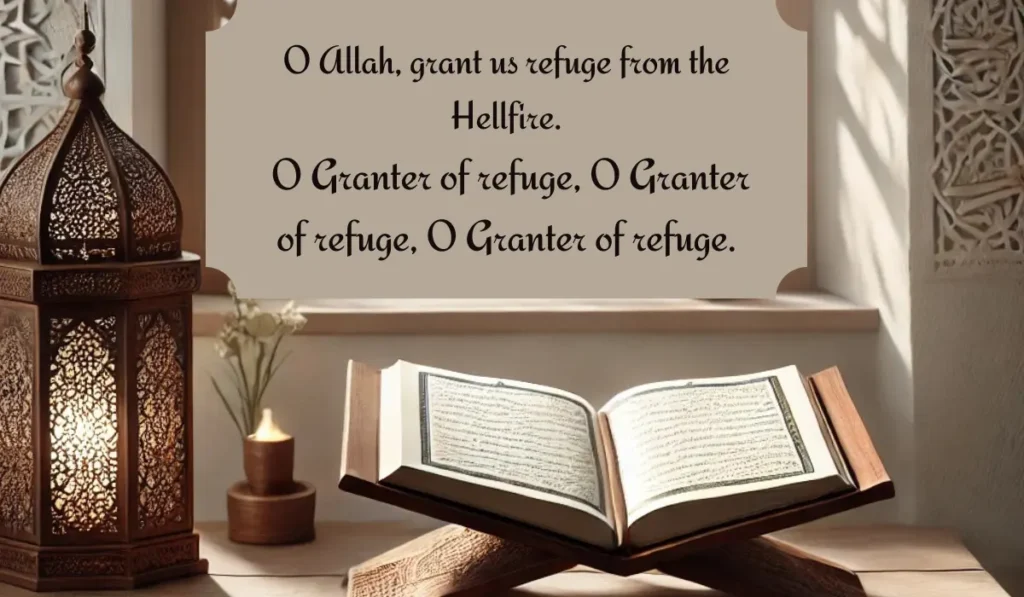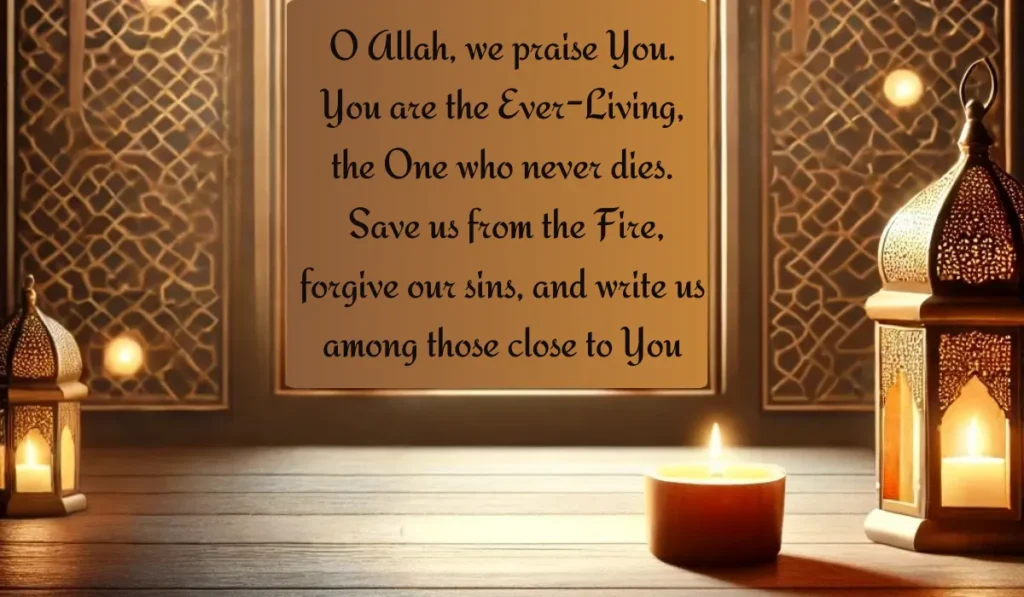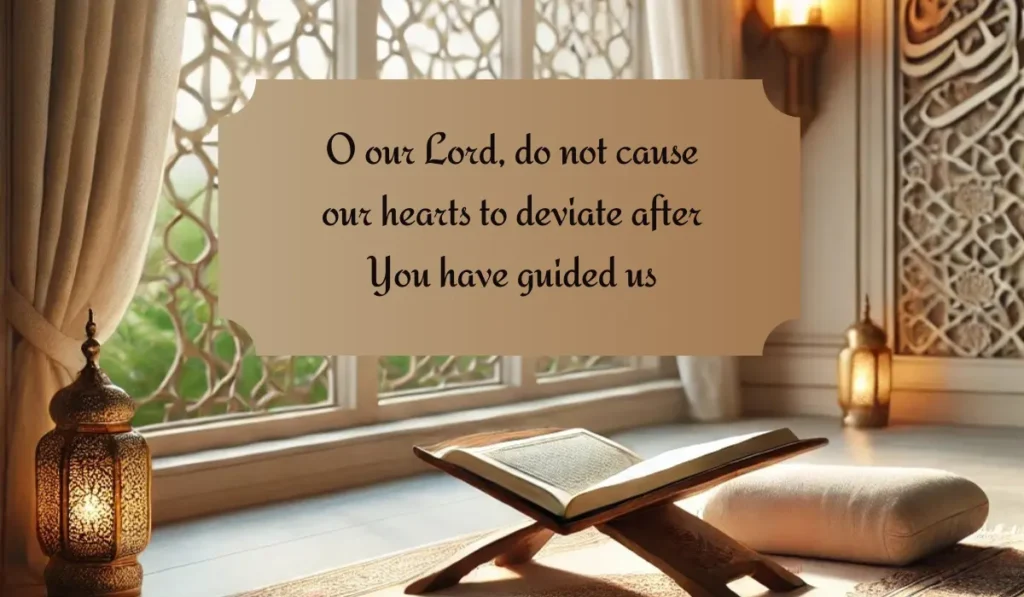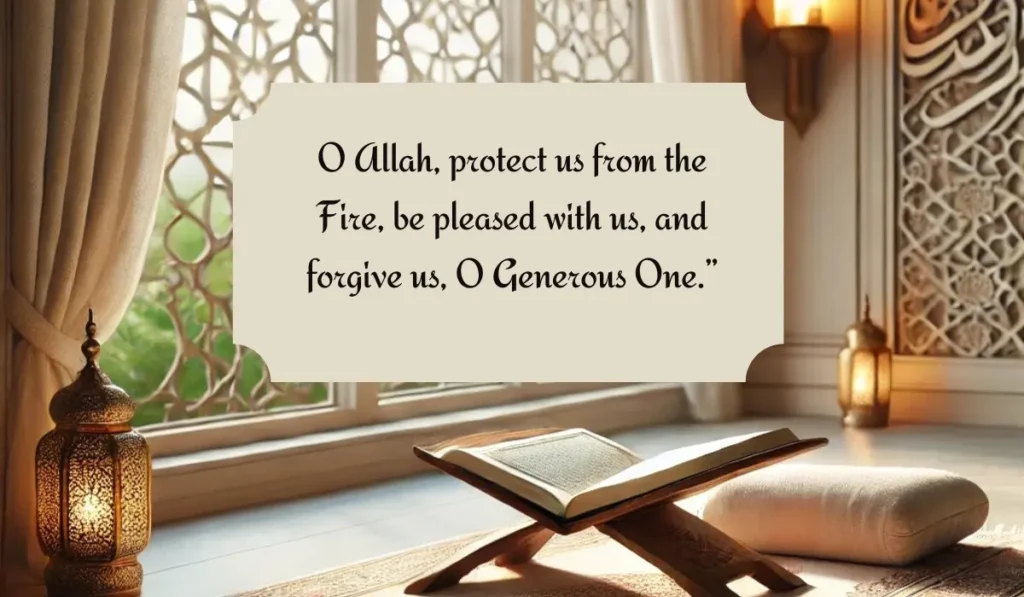Taraweeh Dua in English is a spiritual highlight for many Muslims during the nights of Ramadan. It may not be a prophetic sunnah, but its words are often heard in masjids around the world — a short, heartfelt supplication recited after a few rak‘ahs of Taraweeh.
The imam pauses, the lights are dim, and the congregation listens quietly. The dua praises Allah’s greatness and ends with a simple, urgent request: protection from Hellfire. It’s not required, but it fits the mood of the night — humble, reflective, full of hope. And it’s become part of the rhythm of the Ramadan night prayer for many communities.

This prayer isn’t found in the books of hadith, but it lives in the hearts of worshippers. And for those looking to understand or recite it in their own language, reading the Taraweeh Dua helps deepen the connection. It reminds us of why we’re here: to turn back to Allah, ask for His mercy, and walk away from these nights with a clean heart. For many, hearing or reading the Taraweeh Dua in English helps make that connection even more personal.
In this article, we’ll explore the meaning and background of the Taraweeh Dua, its English translation, when and how it’s used, and how it compares to the authentic Qunoot Dua recited in Witr.
What Is the Taraweeh Dua in English?

The Taraweeh Dua is a non-obligatory but spiritually uplifting supplication that is traditionally recited during or after Taraweeh prayers in Ramadan. While it is not directly taught by the Prophet Muhammad (peace be upon him), it contains noble meanings and praises that align with Islamic teachings.
Many masjids recite this dua after every four rak’ahs or at the end of the full Taraweeh prayer. It praises Allah’s might, affirms His eternal nature, and earnestly asks for refuge from the punishment of the Hellfire.
The Taraweeh Dua in English – Full Translation and Meaning
Here is the commonly recited Taraweeh Dua in English. Though short, it carries deep meaning. You’ll hear it in many masjids during Ramadan — often after every four rak‘ahs or at the end of Taraweeh prayer.
“Exalted is the Possessor of the hidden and the manifest dominion.
Exalted is the Possessor of Might, Greatness, Reverence, Power, Pride, and Majesty.
Exalted is the Master, the Living, the One who neither sleeps nor dies.
All-perfect, All-holy, our Lord and the Lord of the angels and the souls.
O Allah, grant us refuge from the Hellfire.
O Granter of refuge, O Granter of refuge, O Granter of refuge.”This Taraweeh supplication may not be long or complex, but it holds a place in people’s hearts because of its sincerity — a few lines that somehow capture the whole feeling of standing in prayer during Ramadan.
Each line of this Taraweeh Dua focuses on glorifying Allah. It opens with His majestic attributes — a reminder that we are standing before the One who holds all power, who sees what is hidden and what is seen, who never sleeps and never dies.
Then it turns into a heartfelt request: “O Allah, grant us refuge from the Hellfire.” That one line captures the spirit of Ramadan — turning back to Allah with fear, hope, and complete dependence on Him.
The repetition of “O Granter of refuge” three times isn’t just poetic — it’s emotional. It echoes how we ask from the heart, again and again, without giving up. And for many, hearing or reciting the Taraweeh Dua in English helps them truly feel those words, rather than just follow along.
Whether you’re new to Ramadan or have prayed for years, this dua continues to connect. It’s short, sincere, and full of meaning — which is exactly what a good supplication should be.

Is This Dua from the Sunnah? What Scholars Say
One of the most common questions about the Taraweeh Dua is whether it’s from the Sunnah — meaning, did the Prophet Muhammad ﷺ teach this exact supplication?
The simple answer is: no, he didn’t.
This particular dua, with its poetic phrases and repeated line — “O Granter of refuge” — isn’t found in the hadith books. The Prophet ﷺ didn’t recite it after Taraweeh, nor did he teach it as a formal part of night prayer.
But that doesn’t automatically mean it’s wrong to say it.
Many scholars have pointed out that duas with sound meanings — especially ones that glorify Allah and ask for things we’re encouraged to ask for — can be recited in prayer, as long as we don’t treat them like they’re obligatory. That’s the key.
This dua doesn’t contain anything problematic. It doesn’t ask for anything inappropriate. It praises Allah, affirms His Names and Attributes, and asks for refuge from Hell — something the Prophet ﷺ constantly sought in his own duas.
That’s why in many masjids around the world — especially in non-Arab countries — you’ll hear this dua woven into the Taraweeh routine. Not as a replacement for something authentic, but as a spiritual moment that helps the congregation connect, reflect, and reset.
So is it sunnah? No.
Is it allowed? Yes — if it’s done sincerely and not treated like a requirement.
It’s important to make room for both knowledge and softness. Not every beautiful practice is fard. And not every non-prophetic act is a bid‘ah. Some things are simply from the hearts of worshippers, passed down over time, because they moved people closer to Allah.
When and How It’s Recited in Taraweeh
There’s no fixed rule for when this dua is recited. Some imams say it after every four rak‘ahs. Others say it once, at the end of Taraweeh. Some say it out loud, others quietly.
In many non-Arab communities, this dua became part of the rhythm of Ramadan — a soft pause between sets of prayer. A chance for worshippers to gather their thoughts, rest their bodies, and reconnect their hearts.
It’s usually recited by the imam, but there’s nothing stopping an individual from saying it silently, either in the mosque or at home. It’s short enough to memorize. And once you know it, you may find yourself saying it even outside of Ramadan.
If you’d rather say your own dua in your own words — that’s fine, too. Taraweeh is a chance to stand before Allah with sincerity. That’s what matters most.
If you’re praying at home, you can keep a written or digital copy of the Taraweeh Dua in English nearby so you can read it with focus and understanding.

The Authentic Qunoot Dua of Witr
Now, while the Taraweeh Dua is popular, it’s important to know that the Prophet ﷺ did teach a specific dua for night prayer. It’s known as Du‘a al-Qunoot, and it was taught to his grandson, Al-Hasan ibn ‘Ali (may Allah be pleased with them both).
Translation of the Qunoot Dua (from the Sunnah):
“O Allah, guide us among those You have guided,
grant us well-being among those You have granted well-being,
take us into Your care among those You have taken into Your care,
bless us in what You have given,
and protect us from the evil of what You have decreed.
For You decree and none can decree over You.
He whom You support will never be humiliated,
and he whom You oppose will never be honored.
Blessed are You, our Lord, and Exalted.”
This dua is part of the Sunnah. It’s recited in the Witr prayer, often in the last rak‘ah, either before or after the bowing, depending on the school of thought.
Some imams modify it into plural form when reciting it for a congregation: “guide us,” “protect us,” etc.
If you only memorize one dua for Ramadan nights, let it be this one. It’s brief, beautiful, and directly from the Prophet ﷺ.
Why Muslims Still Hold on to the Taraweeh Dua
Even though it’s not from the Sunnah, this short Taraweeh Dua still means something to people.
Part of it is habit — they grew up hearing it. Part of it is rhythm — it fits the breaks between rak‘ahs. But mostly, it’s because of how it feels.
It reflects what many of us are thinking in those moments: “Ya Allah, You are the Most Powerful. You see everything. You never sleep. I’m tired. I’m flawed. Just save me from the Fire.”
It’s not sophisticated. It doesn’t need to be. It’s the kind of dua anyone can understand. Anyone can say. And maybe that’s why it’s stayed with us.
Related Verses and Duas from the Qur’an

Even though this dua isn’t taken directly from the Qur’an, its meanings are supported throughout it. Here are a few verses that echo its themes:
“Say: O Allah, Owner of the dominion. You give sovereignty to whom You will…”
Surah Aal-Imran, 3:26
“Our Lord, indeed whoever You admit to the Fire — You have disgraced him…”
Surah Aal-Imran, 3:192
“O our Lord, do not cause our hearts to deviate after You have guided us…”
Surah Aal-Imran, 3:8
“Our Lord, give us good in this world and good in the Hereafter, and protect us from the punishment of the Fire.”
Surah Al-Baqarah, 2:201
You can use these ayat as part of your own dua during Taraweeh or after Witr. The Qur’an is full of beautiful, honest supplications.

Final Thoughts and a Closing Supplication
Taraweeh is not just a set of extra prayers — it’s a nightly return. A quiet place to unload the weight of the day. A reminder that we’re being heard, even in the silence.
The Taraweeh Dua — though not from the Sunnah — has found a place in this space. It reminds us to praise Allah, to think about the Afterlife, to ask for protection. It’s not perfect, but it’s real. And for many, that’s enough.
As you stand in prayer this Ramadan, whether you recite this dua or not, let your heart speak honestly. Let your tongue call out to the One who hears every whisper.
O Allah, we praise You. You are the Ever-Living, the One who never dies. You know what we hide and what we show. Save us from the Fire, forgive our sins, and write us among those who are close to You. Ameen.
It’s not perfect, but it’s real. And for many, the Taraweeh Dua in English feels like a natural part of their Ramadan nights. That’s enough.
Frequently Asked Questions (FAQs)
Is the Taraweeh Dua a Sunnah?
No, the commonly recited Taraweeh Dua isn’t from the Sunnah. The Prophet ﷺ didn’t teach or recite this specific dua during Taraweeh. But since its meanings are sound — praising Allah and seeking protection from Hell — many scholars permit it, as long as it’s not treated as something required.
Can I say the Taraweeh Dua in English at home?
Yes. You can say it in the mosque or at home, whether you’re praying in congregation or alone. Many people find that reciting the Taraweeh Dua in English helps them connect more deeply, especially if they don’t fully understand Arabic.
Do I have to say this dua after every four rak‘ahs?
Not at all. There’s no fixed rule. Some imams say it after every four rak‘ahs, some only once at the end. Others skip it completely. It’s optional, and you can choose what feels best for your prayer experience.
What’s the difference between this dua and the Qunoot Dua?
The Qunoot Dua is from the Sunnah and is usually recited in the Witr prayer. The Taraweeh Dua is not from the Sunnah but is commonly used during breaks in Taraweeh. Both have good meanings, but one is prophetic and the other is traditional.
Can I recite my own dua during Taraweeh?
Yes. In fact, you’re encouraged to make personal dua during the night prayers — especially in sujood and after Witr. Speak to Allah from your heart, in your own words, in any language. That’s one of the gifts of Ramadan.

